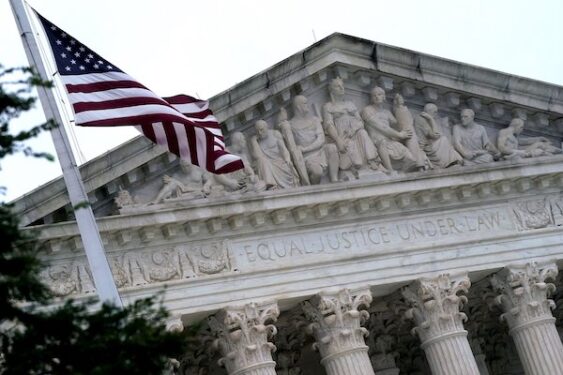
WASHINGTON — The U.S. Supreme Court heard oral arguments April 18 about a former postal worker who was forced to work Sundays against his religious beliefs.
The appeal, filed by Gerald Groff, an evangelical Christian, claims the U.S. Postal Service should have granted his request that he not be required to work on Sundays due to his religious belief that it is a day of worship and rest.
Amid the nearly two-hour argument, Justice Neil Gorsuch suggested that the federal government and Groff needed to find some “common ground.”
Some of the justices also indicated that the case should be sent back to lower courts to clarify how far employers should go to accommodate their employees.
When Groff began working as a postal carrier in Pennsylvania in 2012, the postal carriers did not work Sundays. This policy changed in 2015 when the USPS signed a contract with Amazon to deliver its packages daily.
Groff refused to work on Sundays and at first this was not an issue, but in 2018 he was disciplined for not reporting to work on Sundays, and he resigned a year later.
After resigning, Groff sued the Postal Service for failing to accommodate his request. He argued that the Postal Service’s failure to reasonably accommodate his religion violated Title VII of the Civil Rights Act, the federal law prohibiting discrimination against employees based on their religious practices.
When a federal district judge rejected that argument, Groff appealed to the U.S. Court of Appeals for the 3rd Circuit, which upheld that decision.
The court of appeals said giving Groff an exemption from working on Sunday caused more than a minimal, or “de minimis,” cost for the Postal Service because it affected the rest of his coworkers, requiring them to cover his shifts or deliver more mail.
In his appeal before the Supreme Court in Groff v. DeJoy, the issue before the justices is whether they will consider overturning a precedent set nearly 50 years ago about how employers should accommodate their employees’ religious practices.
The justices hinted at potentially clarifying their 1977 ruling in Trans World Airlines v. Hardison, which said employers were not required to make religious accommodations that constituted an “undue hardship.”
This standard is met if accommodating the employee would require more than a trivial or minimal cost, the opinion added.
Solicitor General Elizabeth Prelogar, who represented the Postal Service for the Biden administration, urged the court not to completely overturn this decades-old decision.
But Aaron Streett, the attorney representing Groff, said the 1977 ruling, and the minimum cost standard it highlighted, should be reversed because it allowed employers to deny religious accommodations by citing any trivial business inconveniences.
While some of the justices seemed sympathetic to the postal worker’s case, they also recognized the balance at play in modern workplaces.
Justices Amy Coney Barrett and Brett Kavanaugh commented on how Groff’s request could lower morale with other employees and some of the justices also noted the financial struggles experienced by the USPS in recent years.
Richard Garnett, a law professor at the University of Notre Dame in South Bend, Indiana, and director of the Notre Dame Program on Church, State, and Society, told The Tablet earlier this year that the case gives the court the “opportunity to revisit, and correct, a 1977 ruling that most observers, across the political spectrum, agree was wrongly decided.”
He said that the Hardison ruling “badly distorted and weakened federal protections against discrimination in the workplace.”
Garnett also said it is “likely that there will be consensus among the justices that the federal rules against religious discrimination at work will be given the meaning and effect that Congress intended.”
The Notre Dame law professor joined seven other legal scholars in a brief supporting Groff’s case that said, “It is far more neutral to accommodate employees’ religious practices than to fire them for practicing their faith.”
The brief said the U.S. Equal Employment Opportunity Commission receives “thousands of religious discrimination complaints each year, some of which include requests for accommodation” and that under the court’s previous ruling, “all but a handful of these requests are dead on arrival.”
It also said the court’s 1977 ruling had a major impact on religious minorities and “raises an important question of federal law” that it should now review.
Another brief supporting Groff was submitted by the American Hindu Coalition, the American Sikh Coalition, and the Council on American-Islamic Relations saying that people in their communities have been disproportionately denied religious accommodations in their jobs.
A decision on this case is expected in June.

I worked for the Post Office for over 35 years, and all of us in a larger office were required to work on Sunday,and that was told to us before we were hired. Did we like it? No. Did we have to miss church, or at least have to go later in the day? Yes. If one person changes the rules now, that will either cause the Post Office to be very short of help on Sundays, or preclude many people from working there. As in any business that is open 24/7, someone has to work on Sunday.